
Programs/Applications Used
- Kali Linux (virtual machine)
- Radare2
Useful Links
Preliminary Steps
I use Arch as my host system but decided I’d like to try using a virtual machine as opposed to a Docker image this time. So I setup Quickemu and then Quickgui so that I’d be able to have a Kali Linux virtual machine.
radare2 comes preinstalled so there was no need to install anything on the virtual machine.
Analysis
The challenge gives a single downloadable file, so first I get some basic information about the file:

I note that the executable isn’t stripped, meaning it still contains all symbol information. (function names, variable names, source file references, debugging symbols, etc.) For some context, a “stripped” binary would be like a book with all the chapter titles and headings removed, so just a wall of text. So what we have is an executable file that should be relatively easy to parse through.
So next will be to simply run the file and see what happens.
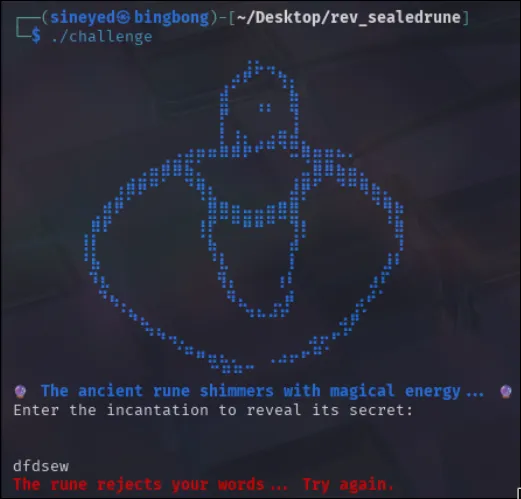
I pressed enter a few times to see if that’d affect anything, but nothing happened. So in the end, it essentially looks for a specific input before giving something. (in this case a refusal) So now to fire up radare2 and see what’s going on inside.
I’ll use the command r2 -d challenge to start and then aaa in order to analyze everything in the binary. I’ll follow that up with afl to list all the functions that are found.
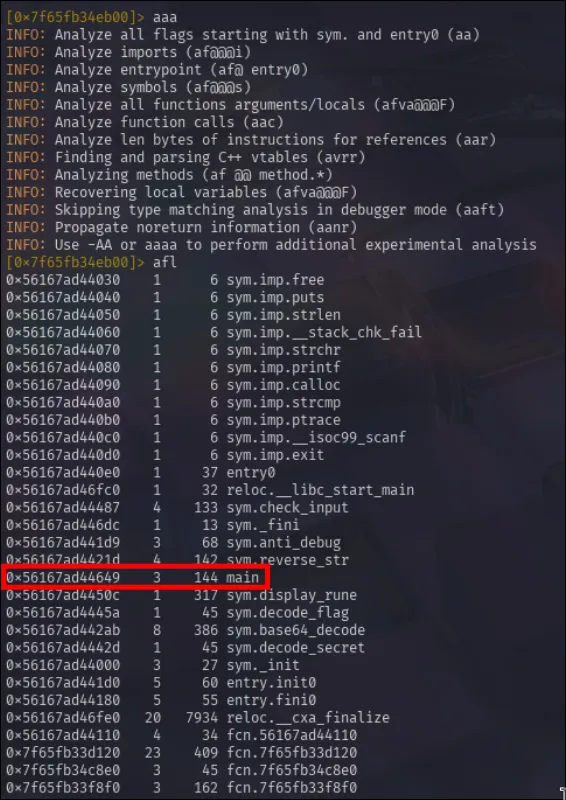
While afl does generate a lot of output, something of note would be the main function. So, I’ll set a breakpoint at main and begin debugging.
I start with dc to execute until the breakpoint and then use pdf to disassemble the main function. But I notice something in main:
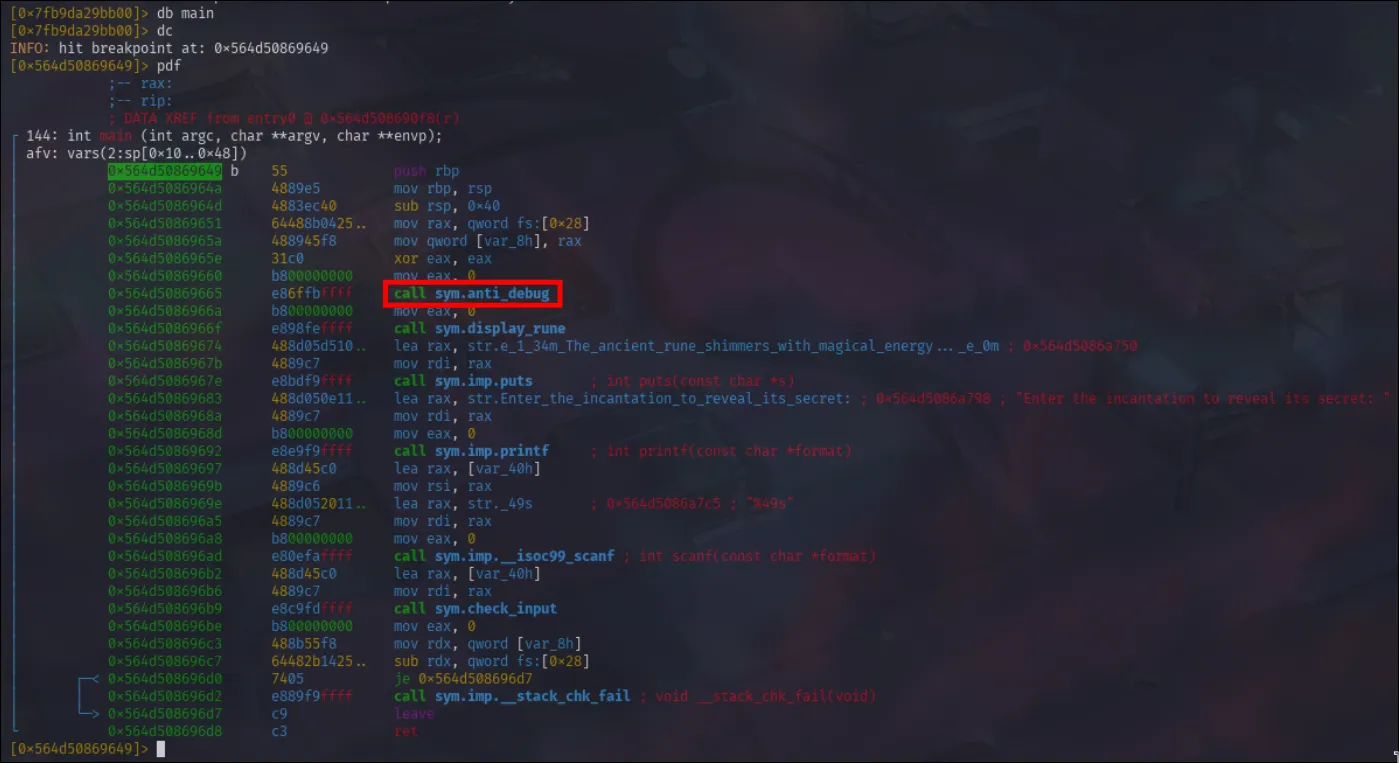
While I’m still unsure what it does, anti-debug sounds pretty ominous as a default. But I’ll keep it in mind. For now, I’ll continue on with checking the registers(ds) and memory at the register (px):
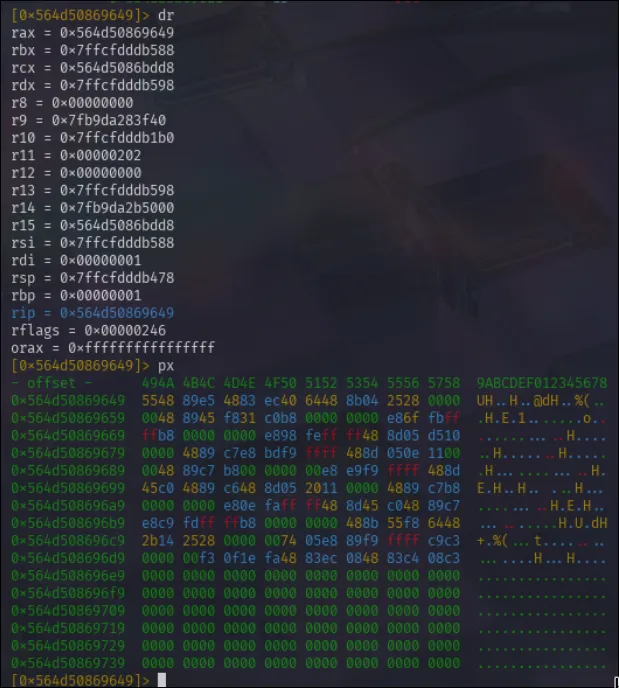
I didn’t see much of interest. But looking back at the main function I can at least see what it’s doing: First the program calls an anti-debugging function. It then will call display_rune which is the message asking for my input. It uses call sym.imp.__isoc99_scanf to take the user input, then verifies it with call sym.check_input. Given that I seek to find what answer is expected of me, I’d likely want to check what is inside check_input. So I’ll navigate (seek) to the function and disassemble.
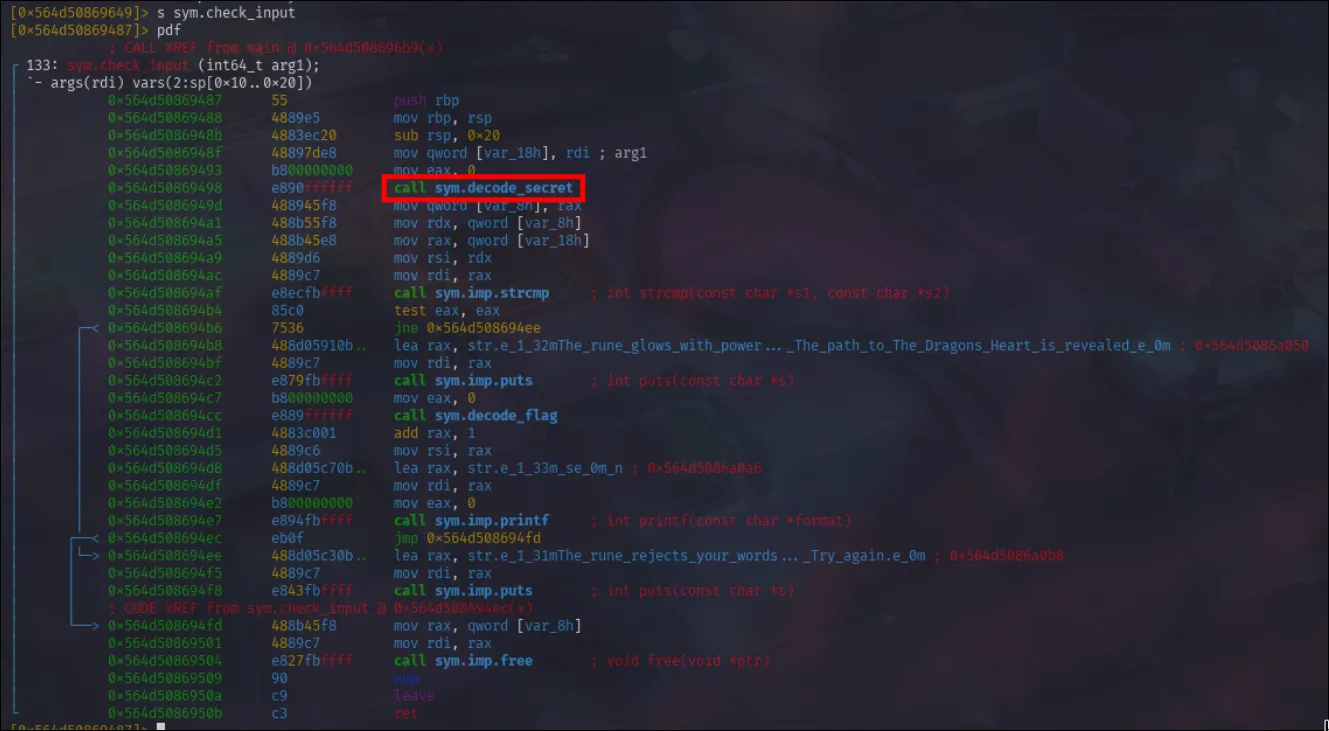
And right off the bat, I see a function named sym.decode_secret that returns a pointer (in rax) to a dynamically allocated string. User input (stored in [var_18h] is then compared to this decoded secret string via strcmp. If the input matches, it gives a print statement then calles sym.decode_flag, if it fails it gives a different print statment.
So, now to set a breakpoint at sym_decode_secret() and see what we can find.

But upon trying to continue execution, a strange message is given. This is likely the anti-debug function found earlier. So, the next step will be to patch the sym.anti_debug function with NOP instructions so that it does nothing.
I’ll seek to the anti_debug function and write an assembly instruction ret at the location. Then I should be able to set a breakpoint at check_input and continue until the next breakpoint.
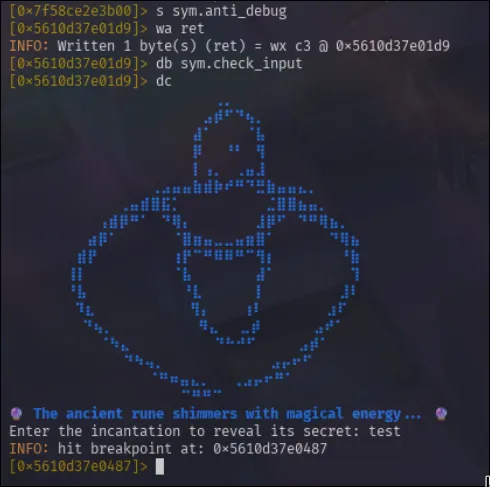
This seems to have worked, and it now hit the sym.check_input after me giving it a random phrase. I should now be able to continue through the breakpoint up to the decode_secret. Once there, I can display the value of the rax register and hopefully see what the string is.
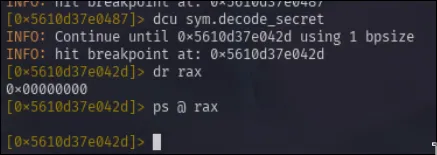
But I notice that the rax is filled with zeros and is empty. What may have happened is sym.decode_secret was ran in isolation by radare2 and thus stepped all the way to the end without the necessary state that would normally be setup with previous instructions. So instead, I’ll try to fully exectue it in context rather than skipping directly to its return address.
First I’ll close out the radare2 instance and rerun it on the binary so it clears all breakpoints. Then get set back to the sym.check_input breakpoint specifically:
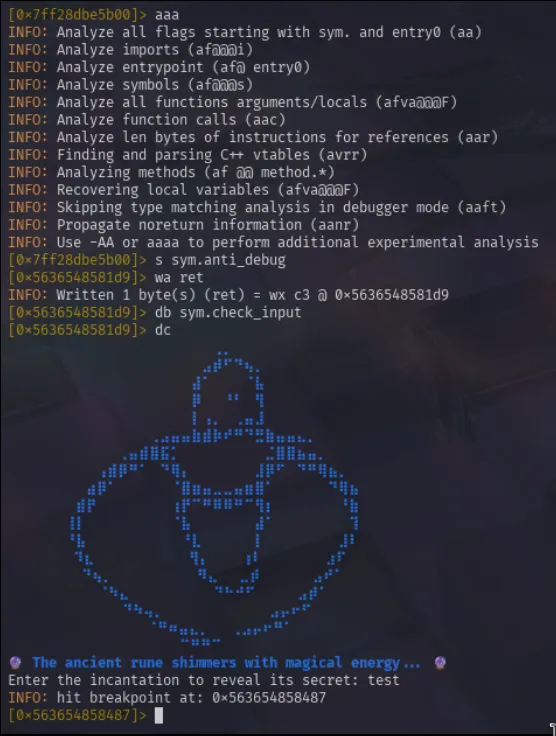
Now that things are set back up, I decided to use call sym.decode_secret and then call/break on it explicity. Once it hit the breakpoint, I started using ds to carefully step through instructions, but didn’t see anything. So instead I opted to use dcr which continues execution until it returns. Upon doing so, it now gives me the secret string point in rax which means I just needed to display the rax register and string.
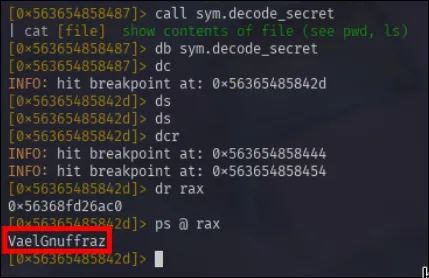
With that answer, I can now rereun the binary and get the flag for completion.
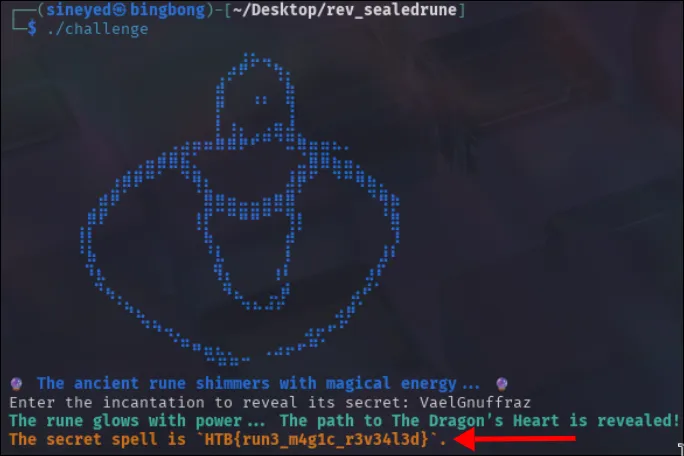
The secret spell is HTB{run3_m4g1c_r3v34l3d}.
Powered by Fuwari
